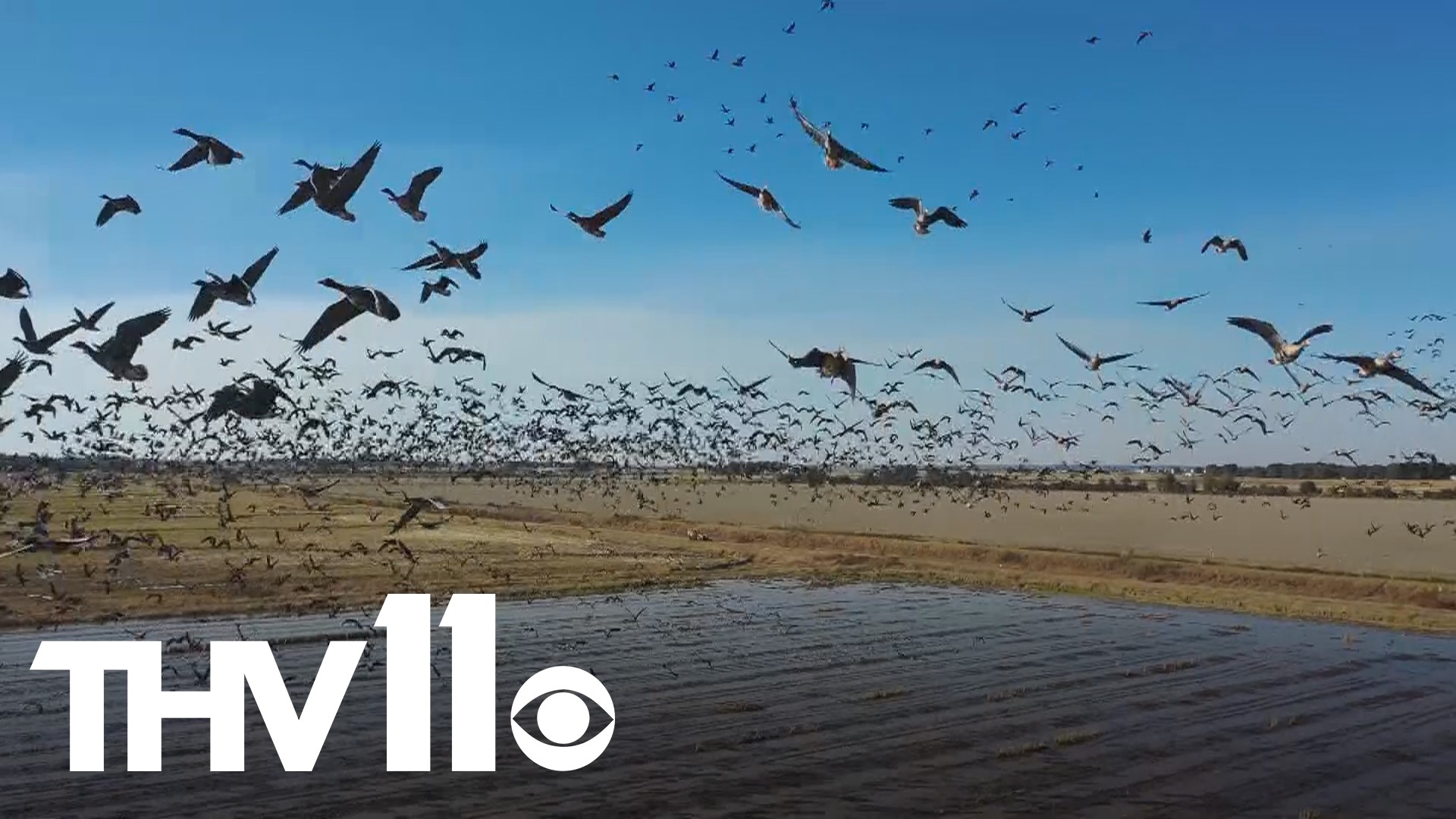LITTLE ROCK, Ark. — Duck hunting in Arkansas is more than just a sport, it’s a way of life. A pastime passed from generation to generation and one that defines who we are as a state.
Arkansas’s claim to fame is largely attributed to our location along the Mississippi Flyway, offering an ideal combination of habitat and food for wintering waterfowl migrating south.
As ideal as it has been for over a century, many duck hunters have noticed an alarming change over the last several years.
While the Arkansas Game and Fish Commission recognizes recent seasons have been tough, they are quick to point out that duck harvest estimates have been steady since the 1980s.
“The good news is that Arkansas continues to lead the nation in duck harvest. It's in the top five for duck seasonal duck harvests per hunter,” said Luke Naylor, a waterfowl biologist at AGFC.
Despite the data, duck hunters like Matt Mosler, who operates Crossheirs Retreat Center, a faith based duck lodge in Humphrey, said their experience in duck blinds across the state suggests differently.
“When I go out to duck hunt, whether its environment or whether it's in one of the rice fields around the Grand Prairie, we don't have the numbers we used to,” Mosler told us, who is also a meteorologist.
Duck hunting is a sport heavily influenced by weather and climate. When areas north of Arkansas become snow or ice covered, ducks are forced to migrate south to find food and habitat.
As our winter temperatures warm, ducks find themselves without a need to migrate to places like Arkansas.
To complicate matters, a severe drought in the Canadian prairie and upper mid-west continues to tighten its grip on duck populations.
According to Dr. Steve Adair, the chief scientist for Ducks Unlimited, said it's dry in the Dakotas up into the Saskatchewan and Alberta regions of Canada. That means the "entire Prairie Pothole region in the U.S. and Canada is dry."
"What that means for waterfowl is that they will have a much reduced breeding effort. So, you know, when they get to the breeding grounds, some of them will just forego breeding altogether," Adair said.
Adair pointed out that birds that make it to Arkansas are used to being hunted every year. That means they are generally older, more experienced, and "may not decoy as well as we're used to."
"It'll be a little tougher getting them in close range this year than we've had in the past,” he said.
Given current conditions, another tough year for duck hunters appears likely.
“I wouldn't say the outlook is great for this season. We have very poor production from the breeding grounds this year,” Naylor said.
While this year looks to be challenging again, duck hunting is a sport that requires patience. But science suggests even more patience will be needed beyond just this season.
All three experts suggest that long term changes in weather and climate will continue to impact waterfowl.
"[Ducks] don't have a need to come down to Arkansas and when they do come down finally, duck season's over,” Mosler said.

